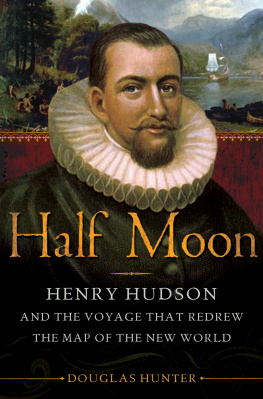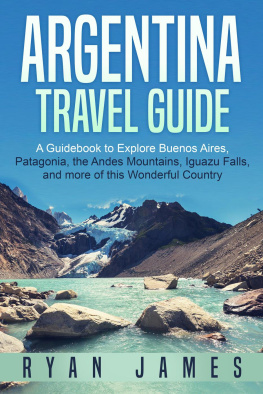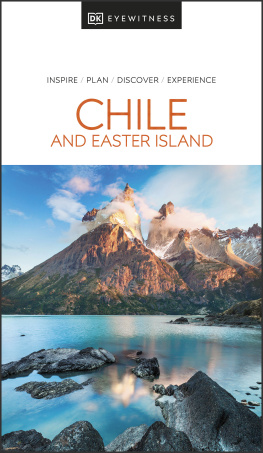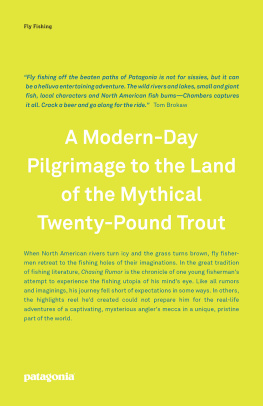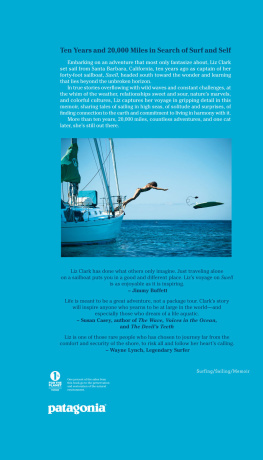W. H. Hudson - Idle Days in Patagonia
Here you can read online W. H. Hudson - Idle Days in Patagonia full text of the book (entire story) in english for free. Download pdf and epub, get meaning, cover and reviews about this ebook. year: 2011, publisher: Barnes & Noble, genre: Detective and thriller. Description of the work, (preface) as well as reviews are available. Best literature library LitArk.com created for fans of good reading and offers a wide selection of genres:
Romance novel
Science fiction
Adventure
Detective
Science
History
Home and family
Prose
Art
Politics
Computer
Non-fiction
Religion
Business
Children
Humor
Choose a favorite category and find really read worthwhile books. Enjoy immersion in the world of imagination, feel the emotions of the characters or learn something new for yourself, make an fascinating discovery.
- Book:Idle Days in Patagonia
- Author:
- Publisher:Barnes & Noble
- Genre:
- Year:2011
- Rating:5 / 5
- Favourites:Add to favourites
- Your mark:
- 100
- 1
- 2
- 3
- 4
- 5
Idle Days in Patagonia: summary, description and annotation
We offer to read an annotation, description, summary or preface (depends on what the author of the book "Idle Days in Patagonia" wrote himself). If you haven't found the necessary information about the book — write in the comments, we will try to find it.
Hudsons classic travel memoir recalls the achievement of a lifelong dream: to visit Patagonia. His adventure in this remote region fulfilled not only a private dream, but also a scientific mission, mainly focused on his ornithological interests. This extraordinary narrative of his year-long visit combines history, nature, reflection, and anecdotes about local life.
Idle Days in Patagonia — read online for free the complete book (whole text) full work
Below is the text of the book, divided by pages. System saving the place of the last page read, allows you to conveniently read the book "Idle Days in Patagonia" online for free, without having to search again every time where you left off. Put a bookmark, and you can go to the page where you finished reading at any time.
Font size:
Interval:
Bookmark:
W. H. HUDSON

This 2011 edition published by Barnes & Noble, Inc.
All rights reserved. No part of this publication may be reproduced, stored in a retrieval system, or transmitted, in any form or by any means, electronic, mechanical, photocopying, recording, or otherwise, without prior written permission from the publisher.
Barnes & Noble, Inc.
122 Fifth Avenue
New York, NY 10011
ISBN: 978-1-4114-3978-8
CHAPTER I
AT LAST, PATAGONIA!
THE wind had blown a gale all night, and I had been hourly expecting that the tumbling, storm-vexed old streamer, in which I had taken passage to the Rio Negro, would turn over once for all and settle down beneath that tremendous tumult of waters. For the groaning sound of its straining timbers, and the engine throbbing like an overtasked human heart, had made the ship seem a living thing to me; and it was tired of the struggle, and under the tumult was peace. But at about three o'clock in the morning the wind began to moderate, and, taking off coat and boots, I threw myself into my bunk for a little sleep.
Ours, it must be said, was a very curious boat, reported ancient and much damaged; long and narrow in shape, like a Viking's ship, with the passengers' cabins ranged like a row of small wooden cottages on the deck: it was as ugly to look at as it was said to be unsafe to voyage in. To make matters worse our captain, a man over eighty years old, was lying in his cabin sick unto death, for, as a fact, he died not many days after our mishap; our one mate was asleep, leaving only the men to navigate the steamer on that perilous coast, and in the darkest hour of a tempestuous night.
I was just dropping into a doze when a succession of bumps, accompanied by strange grating and grinding noises, and shuddering motions of the ship, caused me to start up again and rush to the cabin door. The night was still black and starless, with wind and rain, but for acres round us the sea was whiter than milk. I did not step out; close to me, half-way between my cabin door and the bulwarks, where our only boat was fastened, three of the sailors were standing together talking in low tones. "We are lost," I heard one say; and another answer, "Aye, lost forever!" Just then the mate, roused from sleep, came running to them. "Good God, what have you done with the steamer!" he exclaimed sharply; then, dropping his voice, he added, "Lower the boatquick!"
I crept out and stood, unseen by them in the obscurity, within five feet of the group. Not a thought of the dastardly character of the act they were about to engage infor it was their intention to save themselves and leave us to our fateentered my mind at the time. My only thought was that at the last moment, when they would be unable to prevent it except by knocking me senseless, I would spring with them into the boat and save myself, or else perish with them in that awful white surf. But one other person, more experienced than myself, and whose courage took another and better form, was also near and listening. He was the first engineera young Englishman from Newcastle-on-Tyne. Seeing the men making for the boat, he slipped out of the engine-room, revolver in hand, and secretly followed them; and when the mate gave that order, he stepped forward with the weapon raised, and said in a quiet but determined voice that he would shoot the first man who should attempt to obey it. The men slunk away and disappeared in the gloom. In a few moments more the passengers began streaming out on to the deck in a great state of alarm; last of all the old captain, white and hollow-eyed from his death-bed, appeared like a ghost among us. He had not been long standing there, with arms folded on his chest, issuing no word of command, and paying no attention to the agitated questions addressed to him by the passengers, when, by some lucky chance, the steamer got off the rocks and plunged on for a space through the seething, milky surf; then, very suddenly, passed out of it into black and comparatively calm water. For ten or twelve minutes she sped rapidly and smoothly on; then it was said that she had ceased to move, that we were stuck fast in the sand of the shore, although no shore was visible in the intense darkness, and to me it seemed that we were still moving swiftly on.
There was no longer any wind, and through the now fast-breaking clouds ahead of us appeared the first welcome signs of dawn. By degrees the darkness grew less intense; only just ahead of us there still remained something black and unchangeablea portion, as it were, of that pitchy gloom that a short time before had made sea and air appear one and indistinguishable; but as the light increased it changed not, and at last it was seen to be a range of low hills or dunes of sand scarcely a stone's throw from the ship's bows. It was true enough that we were stuck fast in the sand; and although this was a safer bed for the steamer than the jagged rocks, the position was still a perilous one, and I at once determined to land. Three other passengers resolved to bear me company; and as the tide had now gone out, and the water at the bows was barely waist deep, we were lowered by means of ropes into the sea, and quickly waded to the shore.
We were not long in scrambling up the dunes to get a sight of the country beyond. At last, Patagonia! How often had I pictured in imagination, wishing with an intense longing to visit this solitary wilderness, resting far off in its primitive and desolate peace, untouched by man, remote from civilization! There it lay full in sight before methe unmarred desert that wakes strange feelings in us; the ancient habitation of giants, whose footprints seen on the sea-shore amazed Magellan and his men, and won for it the name of Patagonia. There, too, far away in the interior, was the place called Trapalanda, and the spirit-guarded lake, on whose margin rose the battlements of that mysterious city, which many have sought and none have found.
It was not, however, the fascination of old legends that drew me, nor the desire of the desert, for not until I had seen it, and had tasted its flavor, then, and on many subsequent occasions, did I know how much its solitude and desolation would be to me, what strange knowledge it would teach, and how enduring its effect would be on my spirit. Not these things, but the passion of the ornithologist took me. Many of the winged wanderers with which I had been familiar from childhood in La Plata were visitors, occasional or regular, from this gray wilderness of thorns. In some cases they were passengers, seen only when they stooped to rest their wings, or heard far off "wailing their way from cloud to cloud," impelled by that mysterious thought-baffling faculty, so unlike all other phenomena in its manifestations as to give it among natural things something of the supernatural. Some of these wanderers, more especially such as possess only a partial or limited migration, I hoped to meet again in Patagonia, singing their summer songs, and breeding in their summer haunts. It was also my hope to find some new species, some bird as beautiful, let us say, as the wryneck or wheatear, and as old on the earth, but which had never been named and never ever seen by any appreciative human eye. I do not know how it is with other ornithologists at the time when their enthusiasm is greatest; of myself I can say that my dreams by night were often of some new bird, vividly seen; and such dreams were always beautiful to me, and a grief to wake from; yet the dream-bird often as not appeared in a modest gray coloring, or plain brown, or some other equally sober tint.
From the summit of the sandy ridge we saw before us an undulating plain, bounded only by the horizon, carpeted with short grass, seared by the summer suns, and sparsely dotted over with a few somber-leafed bushes. It was a desert that had been a desert always, and for that very reason sweet beyond all scenes to look upon, its ancient quiet broken only by the occasional call or twitter of some small bird, while the morning air I inhaled was made delicious with a faint familiar perfume. Casting my eyes down I perceived, growing in the sand at my feet, an evening primrose plant, with at least a score of open blossoms on its low wide-spreading branches; and this, my favorite flower, both in gardens and growing wild, was the sweet perfumer of the wilderness! Its subtle fragrance, first and last, has been much to me, and has followed me from the New World to the Old, to serve sometimes as a kind of second more faithful memory, and to set my brains working on a pretty problem, to which I shall devote a chapter at the end of this book.
Font size:
Interval:
Bookmark:
Similar books «Idle Days in Patagonia»
Look at similar books to Idle Days in Patagonia. We have selected literature similar in name and meaning in the hope of providing readers with more options to find new, interesting, not yet read works.
Discussion, reviews of the book Idle Days in Patagonia and just readers' own opinions. Leave your comments, write what you think about the work, its meaning or the main characters. Specify what exactly you liked and what you didn't like, and why you think so.







